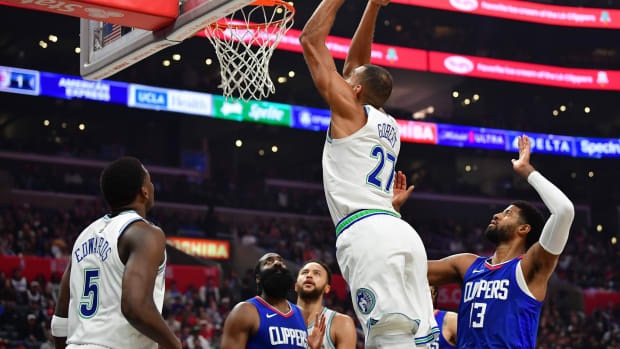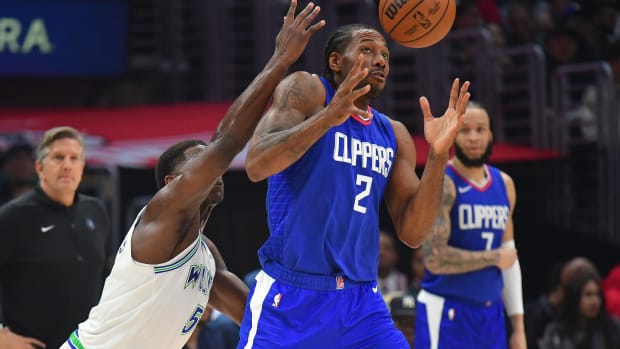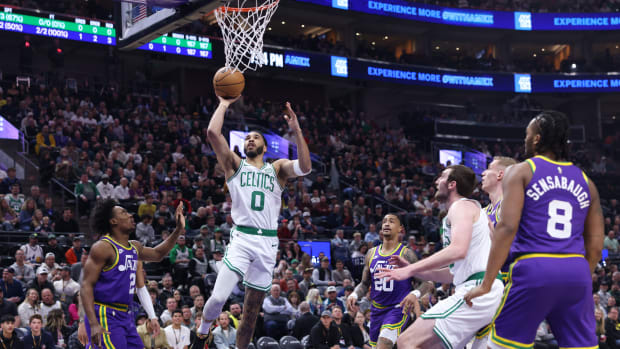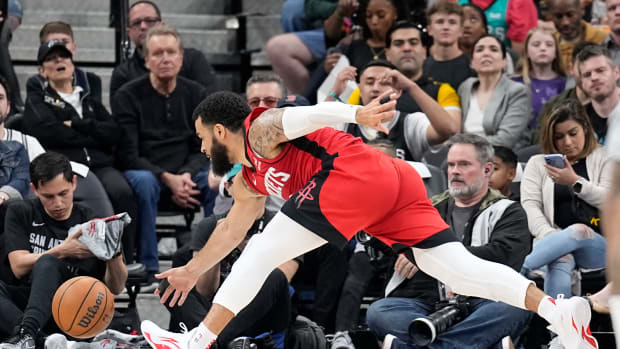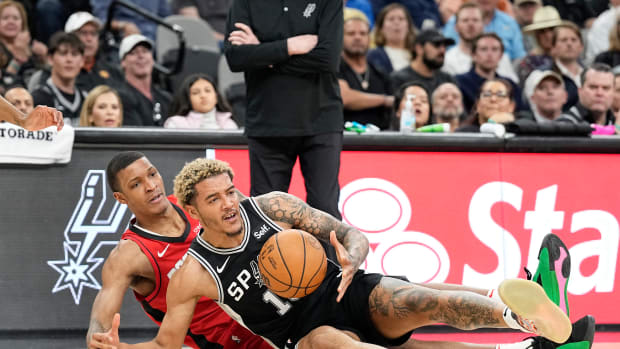Fast and Furious: Heat Use Speed to Slow Down Celtics
The Heat won Game 1 for myriad reasons, but one happens to matter more than the rest: They employ Jimmy Butler, who scored 41 points and attempted 18 free throws against a Celtics defense that needed key minutes from Payton Pritchard and Daniel Theis because Marcus Smart and Al Horford did not play. Boston looked predictably vulnerable in the fourth quarter, as Butler summoned Pritchard into one ball screen after another, a deliberate tactic that consistently manufactured quality looks.
For one night, that strategy was a solution. But, assuming Smart and Horford eventually recover from a foot sprain and health and safety protocols, Miami won’t be able to eat with it all series. Boston will get healthy and adjust its coverages. (Butler may still draw fouls and hit contested jump shots because that’s what great offensive players do, but they won’t come by way of him repeatedly asking Smart’s man to set a pick.)
The series opener wasn’t defined by that action, either; even in the middle of his own methodical onslaught, Butler made a curious decision with a 13-point lead and about five minutes left in the fourth quarter. After Jaylen Brown missed on a putback dunk try that sent Bam Adebayo sprawling to the floor, Max Strus grabbed the rebound and quickly tossed it to Butler, who hurried up the floor toward a couple backpedaling Celtics and, with 19 seconds on the shot clock, pulled up from the right elbow.
Considering time, score, how the floor was balanced and the success Butler had against Pritchard, it felt just a tad rushed. At the same time, pretty much every missed shot in Game 1 was used to sling shot an opportunity the other way. All night long, both teams adopted the same approach after every rebound and live-ball turnover: Run.
“We want to live like that,” Adebayo said after the game. “Coach doesn't want us to run plays.”
This isn’t some unique concept. It’s easier to score early in the shot clock against a scrambled opponent than one that’s had time to get organized. But in this series, offensive gameplans will be especially desperate to avoid the chore of having to execute against a set defense. The Heat and Celtics entered the conference finals with the postseason’s two most stout half-court groups. Boston finished the regular season ranked first and Miami was fifth.
Related: There have been only three games all season in which Boston had a higher transition frequency than on Tuesday night. The one time their transition frequency was higher off live rebounds came in Game 3 of the second round. The old adage about games needing to slow down in the playoffs was a lie in this series opener. The Celtics were relentless pushing the pace whenever Miami missed a shot. They speed-dribbled into the paint, ran drag screens and took quick threes.
The Heat weren’t any different. Only 75.2% of their possessions came in the half-court, which is their seventh-lowest number of the season, and their transition frequency off a live rebound (36.7%) was only topped one time in these playoffs.
Watch NBA games online all season long with fuboTV: Start with a 7-day free trial!
“You have two really good defenses and you’re looking for any kind of advantages in the margins,” Erik Spoelstra said after the game. “Whatever we’re saying, I guarantee they’re saying it. And they definitely did that to us in the first half.” (In the first two quarters, Boston added a whopping 17.9 points per 100 possessions to their offense in transition. They eventually finished at +12.2, which was their second-highest mark of the season.)
The emphasis on transition offense makes transition defense even more critical than it already is. There’s an inherent Catch-22 involved: both teams want to score at the rim, but every single time there’s a miss, the commitment to racing right back the other way is amplified. Watch how quickly the Heat respond when Grant Williams can’t convert on a tough drive into the paint:
Everything is connected, cyclical and mutually beneficial: made shots lead to a set defense which increases the chance of getting a stop and getting to score in transition, which leads to a set defense, etc. Butler’s trips to the foul line are a bonus for several reasons, one being that Miami’s opponents fall into a mud pit against a defense that has time to assemble off a made free-throw. (In the playoffs, the average offensive possession lasts 18.18 seconds after the Heat make a free throw, which is second only to the Jazz.)
“I've said it all year long, whenever we let our defense dictate our offense, we are a much better team,” Butler said after the game. “We get stops, we get into the open floor, we whip
that ball around to our shooters. That's the style of basketball we call ‘Miami Heat basketball’.
The Heat won’t get to pick on Pritchard all series. But regardless of who’s on the floor, they’ll look to speed the game up as much as they can, as will Boston. It’s here, in chaos, where an eventual trip to the Finals can be found.
More NBA Coverage:
- The Warriors' Reign Is Not Over Yet
- NBA Mock Draft: Magic Win Lottery, Latest Projections
- Behind the Scenes of the NBA Draft Lottery
- Key Questions for Mavericks-Warriors Western Conference Finals
Sports Illustrated may receive compensation for some links to products and services on this website.






























